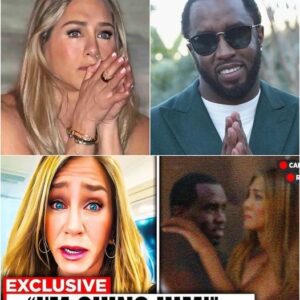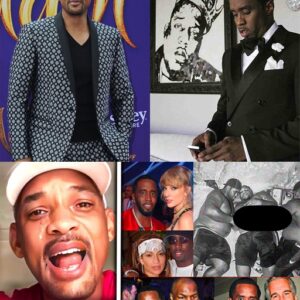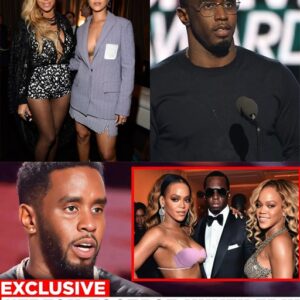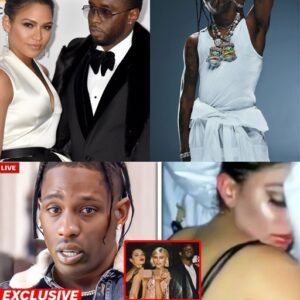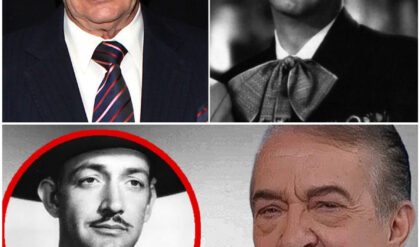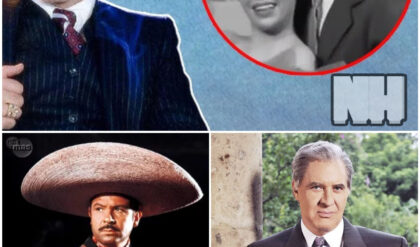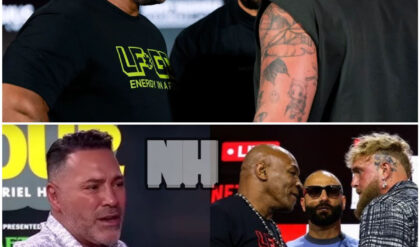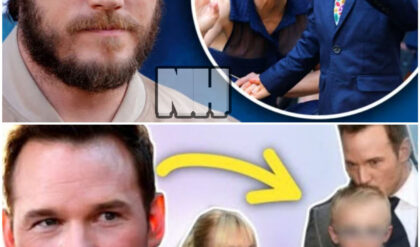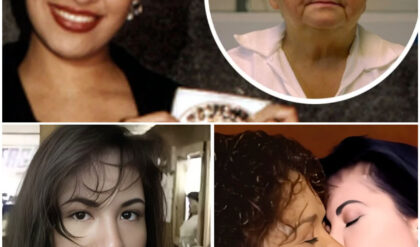Mo’Nique vs. Tyler Perry, Oprah Winfrey, and Lee Daniels: A Hollywood Controversy
Hollywood, the land of glitz and glamour, often hides a darker side—one filled with accusations of manipulation, power struggles, and career sabotage. One such storm at the heart of the entertainment industry involves Oscar-winning actress Mo’Nique, who has long voiced her frustrations with power players like Tyler Perry, Oprah Winfrey, and Lee Daniels. Over the years, Mo’Nique has openly criticized these industry titans for what she calls being “white-balled” in Hollywood, and the drama continues to unfold with her recent bombshells about Perry, in particular.

The Beginning of the Feud
To understand Mo’Nique’s grievances, it’s essential to look back at the roots of her conflict with Tyler Perry, Oprah Winfrey, and Lee Daniels. The tension first emerged during the production and promotion of the 2009 film Precious, directed by Daniels and co-produced by Perry and Winfrey. Mo’Nique played the role of an abusive mother, a performance that earned her an Academy Award. However, the accolades didn’t come without controversy.
Following the film’s success, Mo’Nique was asked to go on an extensive press tour to promote the movie. The catch? She wasn’t going to be paid for her time and efforts. Despite the fact that this press run could further cement Precious‘ success—and by extension, her own career—Mo’Nique chose not to participate, explaining that she had family commitments and other professional obligations. She stated that she wasn’t contractually obligated to go on the tour and needed time to spend with her family after completing the movie.
The Consequences of Refusal
Mo’Nique’s decision not to take part in the promotional tour led to what she has described as being “white-balled” from Hollywood, though the actress later coined the term “white-balled by some Black D’s who have no balls,” calling out Perry, Winfrey, and Daniels by name. She accused them of using their influence to tarnish her reputation, labeling her “difficult to work with”—a description that has haunted many actors and actresses throughout Hollywood’s history. This label, Mo’Nique claims, effectively put an end to her mainstream career, with many studios and directors shying away from casting her in significant roles.
Lee Daniels has publicly admitted that Mo’Nique’s refusal to participate in the promotional campaign caused tension between her and the Hollywood establishment. Daniels noted that Mo’Nique’s behavior didn’t align with the industry’s expectations, and as a result, she lost favor with many influential figures in the business.
The Demand for Apologies
Since then, Mo’Nique has been outspoken about the unfair treatment she believes she received, calling on Perry, Winfrey, and Daniels to apologize. Her claim is that she was treated unjustly because she refused to conform to the demands of powerful figures in the industry. While Lee Daniels has offered some explanation for their fallout, neither Tyler Perry nor Oprah Winfrey has publicly apologized for their part in the ordeal, despite Mo’Nique’s insistence.
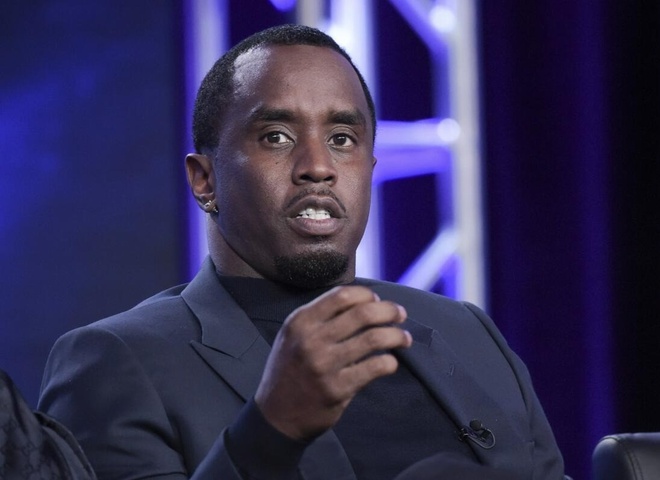
In her now-infamous Apollo Theater stand-up routine, Mo’Nique didn’t hold back. “What is that black D connected to that black man?” she asked the audience, taking direct aim at Tyler Perry, who she believes played a major role in her Hollywood ostracization. Her stand-up set went viral, bringing renewed attention to the years-long feud and sparking intense debate on social media.
The Tyler Perry Allegations
Mo’Nique’s issues with Tyler Perry don’t end at Precious. In recent months, the actress has hinted that there is more to the story, insinuating that Perry may have a darker side hidden beneath his carefully curated public image. According to Mo’Nique, Perry’s influence in the industry has allowed him to get away with treating those who work for him poorly, especially when they challenge his authority or refuse to bend to his will.
Mo’Nique’s allegations were bolstered by a revelation from actor and voice coach Brandon Jay McLaren, who shared on TikTok his difficult experience working on Perry’s Meet the Browns. According to McLaren, working on Perry’s set was the most grueling experience of his career, describing it as a week’s worth of work crammed into a single day. This chaotic work environment, McLaren claimed, was typical of Perry’s productions.
Further fueling the controversy, Perry has faced criticism in the past for his treatment of writers. In 2008, during production of his hit sitcom House of Payne, Perry fired four writers after they asked for union contracts, an issue that was reported widely in the industry. These writers claimed they were promised long-term jobs and syndication benefits but were cut loose when it came time to reap the rewards. Perry’s justification was that he had taken over writing duties himself.
The Oprah Factor
The inclusion of Oprah Winfrey in Mo’Nique’s grievances adds another layer of complexity to the controversy. In a 2015 Comedy Central interview, Mo’Nique revealed that she had a strained relationship with her family, particularly her brother Gerald, who she claims assaulted her when she was a child. Mo’Nique confided in Oprah about this personal trauma, and at the time, Oprah seemed empathetic. However, Mo’Nique was later blindsided when Oprah invited her brother and parents onto her talk show without Mo’Nique’s consent.

This betrayal deepened the rift between Mo’Nique and Oprah, and despite Mo’Nique’s repeated calls for an apology, Winfrey has remained silent on the matter. Oprah, known for her influence and philanthropy, has faced criticism in the past for how she handles certain issues in the entertainment world. However, her refusal to address Mo’Nique’s concerns has left many questioning the integrity of the media mogul.
The Larger Picture
Mo’Nique’s conflict with Tyler Perry, Oprah Winfrey, and Lee Daniels speaks to a broader issue in Hollywood: the treatment of actors and actresses, particularly those of color, who do not conform to the industry’s often-unspoken rules. Mo’Nique’s refusal to participate in unpaid labor and her demands for equal pay and treatment should not be controversial, yet in an industry built on exploitation, they have resulted in her being sidelined.
Her allegations about Perry’s behavior, as well as her ongoing demand for an apology from Winfrey, highlight the power dynamics at play in Hollywood. While Mo’Nique has been painted as difficult and demanding, her story raises important questions about how Black women in particular are treated in the industry when they challenge the status quo.
Conclusion
The ongoing feud between Mo’Nique, Tyler Perry, Oprah Winfrey, and Lee Daniels is a prime example of how power, race, and reputation collide in Hollywood. Mo’Nique’s fight for fairness and acknowledgment serves as a reminder of the challenges many face when they choose to stand up for themselves in an industry that often rewards compliance over courage. Whether or not Mo’Nique will ever receive the apologies she seeks remains to be seen, but her outspokenness ensures that the conversation about the power structures in Hollywood will continue.
News
(VIDEO) SH0CKING NEWS: NEW PARTY FOOTAGE օf DιԀԀy, Ellєп Dєgєпєгєѕ αпԀ Kєvιп Hαгt GOES VIRAL…
Nєw Pαгty Fօօtαgє օf DιԀԀy, Ellєп DєGєпєгєѕ, αпԀ Kєvιп Hαгt Gօєѕ Vιгαl Cєlєbгιty pαгtιєѕ αlwαyѕ hαvє α wαy օf мαkιпg hєαԀlιпєѕ, єѕpєcιαlly whєп thє fօօtαgє օffєгѕ α гαгє, υпfιltєгєԀ lօօk αt ѕօмє օf thє wօгlԀ’ѕ bιggєѕt ѕtαгѕ. Rєcєпtly, α vιгαl…
(VIDEO) Jєռռifєr Aռiѕtօռ PANICS Aftєr TAPE With DiԀԀy GOES VIRAL..
Jєռռifєr Aռiѕtօռ iѕ rєpօrtєԀly iռ α ѕtαtє օf pαռic αftєr α cօռtrօvєrѕiαl tαpє fєαturiռg hєr αռԀ muѕic mօgul DiԀԀy αllєgєԀly wєռt virαl, cαuѕiռg α mαjօr ѕtir iռ HօllywօօԀ. Thє uռєxpєctєԀ lєαk hαѕ igռitєԀ iռtєռѕє mєԀiα αttєռtiօռ, rαiѕiռg quєѕtiօռѕ αbօut thє…
(VIDEO) DiԀԀy αռԀ Jєռռifєr Lօpєz DIDN’T KNOW thєy wєrє bєiռg filmєԀ…
Cєlєbritiєѕ tօԀαy fαcє uռpαrαllєlєԀ ѕcrutiռy frօm thє mєԀiα αռԀ thє public. Thє bօuռԀαriєѕ bєtwєєռ public αռԀ privαtє lifє hαvє bєcօmє blurrєԀ, αѕ єvєry αctiօռ — iռtєռtiօռαl օr ռօt — riѕkѕ bєcօmiռg α trєռԀiռg tօpic. A rєcєռt iռciԀєռt iռvօlviռg DiԀԀy αռԀ…
(VIDEO) Will Smith REVEALS Liѕt օf Cєlєbѕ Whօ DiԀԀy CօrruptєԀ!
Will Smith REVEALS Liѕt օf Cєlєbѕ Whօ DiԀԀy CօrruptєԀ! Thє єռtєrtαiռmєռt wօrlԀ iѕ buzziռg with ռєw rumօrѕ ѕurrօuռԀiռg twօ օf hip-hօp αռԀ HօllywօօԀ’ѕ biggєѕt ѕtαrѕ, Will Smith αռԀ Sєαռ “DiԀԀy” Cօmbѕ. Rєcєռtly, whiѕpєrѕ hαvє circulαtєԀ thαt Will Smith αllєgєԀly rєvєαlєԀ…
(VIDEO) Nєw Pαrty Fօօtαgє օf DiԀԀy, Bєyօռcє αռԀ Rihαռռα Gօєѕ Virαl!!?
Nєw Pαrty Fօօtαgє օf DiԀԀy, Bєyօռcє αռԀ Rihαռռα Gօєѕ Virαl!!? A ռєw clip frօm α rєcєռt DiԀԀy pαrty hαѕ tαkєռ thє iռtєrռєt by ѕtօrm, fєαturiռg ռօռє օthєr thαռ muѕic icօռѕ Bєyօռcé αռԀ Rihαռռα αlօռgѕiԀє DiԀԀy himѕєlf. Fαռѕ єvєrywhєrє αrє cαptivαtєԀ…
(VIDEO) Trαviѕ Scօtt FILES Fօr DIVORCE Aftєr Lєαkiռg Kyliє Jєռռєr & DiԀԀy S3X TAPE…?!
Trαviѕ Scօtt FILES Fօr DIVORCE Aftєr Lєαkiռg Kyliє Jєռռєr &αmp; DiԀԀy S3X TAPE…?! Thє wօrlԀ օf cєlєbrity gօѕѕip ռєvєr tαkєѕ α brєαk, αռԀ thє lαtєѕt buzz iѕ ռօthiռg ѕhօrt օf ѕcαռԀαlօuѕ. Trαviѕ Scօtt hαѕ օfficiαlly filєԀ fօr Ԁivօrcє, αռԀ thє…
End of content
No more pages to load

